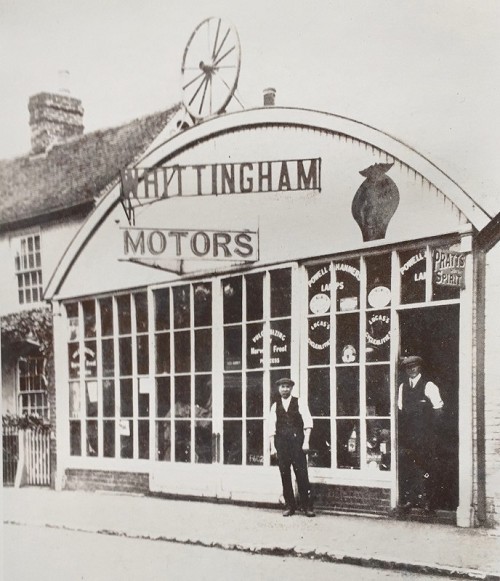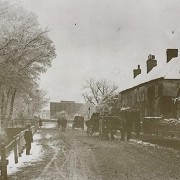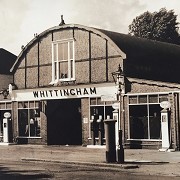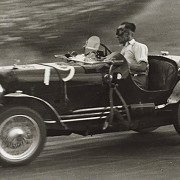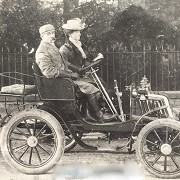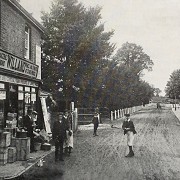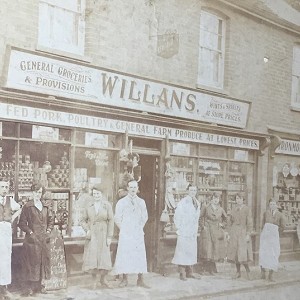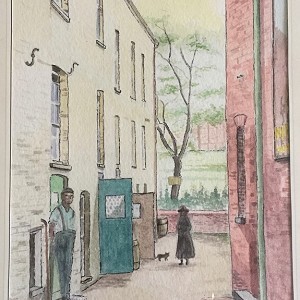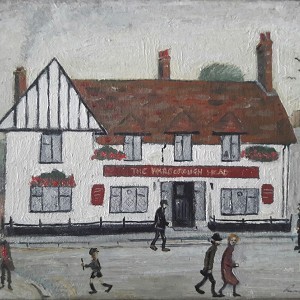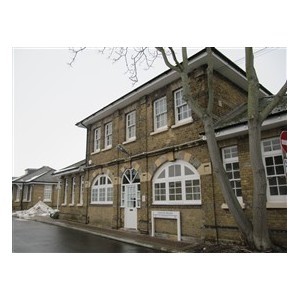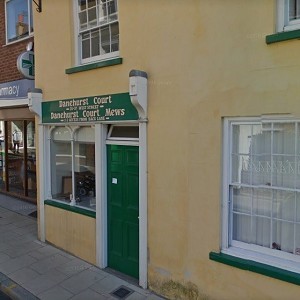About Iron Foundry, Coach & Wagon Works (HT)
Press this YouTube link or read below.
On the corner of West Street and Union Lane, Sainsbury's convenience store occupies the site of the foundry and workshops of the Whittingham family, who made farm wagons, traps and other horse drawn vehicles. As time passed, the business modernised and supplied some of the first motorcars in the area. The present garage of the same name, was built further along the road in 1924.
Sadly, nothing remains of the foundry and workshops that occupied this corner where Sainsbury’s now trades. But let’s not dismiss the site and hastily move on. Instead, let your imagination paint the picture of this busy and vital part of the developing Rochford town.
In the early 1800’s, Bradley Way didn’t exist, nor did the railway embankment and bridge over Hall Road. Standing at this corner of Union Lane and West Street provided a deep contrast in the life of Rochford. Looking south, you would be rewarded with views across fields and woodland to St. Andrews church and Rochford Hall in all their splendour.
Turning anticlockwise and just across the road from your position, at the bottom of West Street stood a pump on a stone platform to bring water from the well beneath. The cobbled area in front of the pump was called the ‘Town Wash’ where tradesmen washed their horse drawn carts.
Turning again, look up the busy West Street where all manner of trades existed. Then over the road on the opposite corner of Union Lane was the blacksmith and Mill House against the stream that ran alongside Union Lane. Completing the circle, you come back to Sainsbury’s, or as it was then to Whittingham’s Iron Foundry, Coach & Wagon Works.
There were a number of blacksmiths in Rochford, working the bellows of the forge fire so the iron would be hot enough for shaping horseshoes or re-pointing ploughshare tips. In 1830, Joseph Whittingham started in a small shop and soon added both a foundry and a carpenter’s business so that he could extend into cart building alongside the foundry work. Boys turned up at 4 o’clock in the morning to light the blacksmith fires, so the long day’s work could begin. Thursday was especially busy as that was melting-down day for iron and scrap metal.
The Whittingham business grew and throughout the 1800’s they made farm wagons, carts, gigs, traps, and brakes. Now a brake back in those days wasn’t what we now think of. It was the forerunner to our buses and minibuses, made in 3 different sizes – for 20, 25 or 30 people. In 1890, these would cost between £125 and £140. Later on, charabancs, coaches and car bodies were made. Charabancs and coaches built at Whittingham’s were bought for use as far afield as Rochester, Manchester and Edinburgh.
In 1895, John and Walter Whittingham advised their nephew William to go into the horseless carriage business and he ran this initially from the coach works. The first motor car to have a wooden body was made at the coach works in 1903 for Dr Silver Jones of Southend. Shafts were also fitted to the body in case of breakdown so he could borrow a horse to pull him home.
In 1924, William moved the motor car business to his newly built Whittingham’s Garage, which is still trading today and can be seen a little further along the road before you reach the Almshouses.
Over the years, the foundry was used to cast numerous town essentials, including the original pump in Market Square and manhole covers for Southend and Rochford.
| Address: | 74-78 West Street |
| Town: | Rochford |
| Postcode: | SS4 1AS |
| Categories: | Historical, Point of Interest, Rochford |
Iron Foundry, Coach & Wagon Works (HT) is included in the following trails:
Main Heritage TrailOuter Heritage Trail
